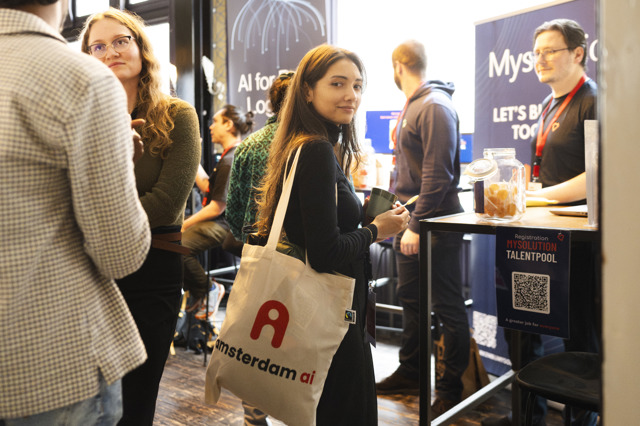< Back to news 


31 December 2024
Executives Concerned: ‘AI Will Replace Jobs’ – Key Findings from ING Survey
An increasing number of executives from large Dutch companies are expressing concerns that artificial intelligence (AI) will lead to job displacement. This is one of the key findings from the annual CEO survey by ING, which involved 263 major Dutch businesses.
NOS wrote a article about AI taking over jobs, what do we think?
NOS states: The executives are particularly worried about the rapid pace at which AI is developing. Mark Milders, division director at ING, explained, “This is a technology that evolves so quickly, it’s difficult to keep up.” Many of the CEOs fear that if they cannot match the speed of AI’s growth, their companies may fall behind their competitors.
Last year, only 6% of top executives believed AI would replace jobs. Now, that figure has risen to 19%. The sectors where job replacement is expected to be most prominent include IT and customer service departments. Executives acknowledge that AI has made significant strides, with many now seeing practical examples of its implementation both in personal and professional contexts. Milders noted, “Last year, people were still wondering where this was headed. Now, more and more examples of AI’s practical applications are evident in both their private and business lives.”
Job Losses Already Occurring Some companies have already begun replacing employees with AI. One such example is the tech company Bird, based in Amsterdam, which laid off 90 of its 450 employees earlier this year as AI enabled them to reduce their workforce. Another example is Klarna, a payments company that is hiring very few new employees, likely due to the implementation of AI technologies in their operations.
The survey also highlights a generally optimistic outlook among executives regarding next year’s economic prospects. A large majority of the surveyed CEOs are hopeful about the potential impacts of Donald Trump’s new presidency in the United States. Many believe that his leadership could result in more foreign investments, creating opportunities for growth. However, concerns remain about the possibility of a trade war, particularly if Trump imposes import tariffs, which could disrupt global trade and affect the business climate.
As AI continues to evolve, its influence on the workforce is becoming increasingly clear. While some industries embrace the technology to improve efficiency and reduce costs, others are facing the uncomfortable reality of job losses. The challenge for executives will be to balance the benefits of AI with the potential consequences for their workforce and to ensure that the transition to AI-driven operations is handled ethically and responsibly.
In conclusion, the findings from the ING survey reflect a growing concern among Dutch business leaders about the implications of AI for jobs. As the technology continues to develop, it will be crucial for companies to stay ahead of the curve while mitigating the social and economic effects of AI-driven job displacement. This shift is likely to reshape many industries, especially those that rely on repetitive tasks and customer interactions, making it essential for businesses to think carefully about how to integrate AI in a way that benefits both their operations and their employees.
Vergelijkbaar >
Similar news items

28 April 2025
AI020 Conference Brings Together 400+ AI Experts in Amsterdam
On April 17, AI020 brought together over 400 AI researchers, professionals, and students in Amsterdam for a full day of keynotes, workshops, and startup showcases highlighting the latest in applied and responsible AI.
read more >

April 27, 2025
Watchdog raises alarm: act now to stop your Instagram photos from being used for AI
Privacy watchdogs urge Instagram and Facebook users to object to the use of their photos and posts for AI training.
read more >

April 27, 2025
Amsterdam struggles with future of data centers and digital ambitions
A divided message from Amsterdam’s city council: while one alderman welcomes the tech sector, another blocks the growth of data centers.
read more >